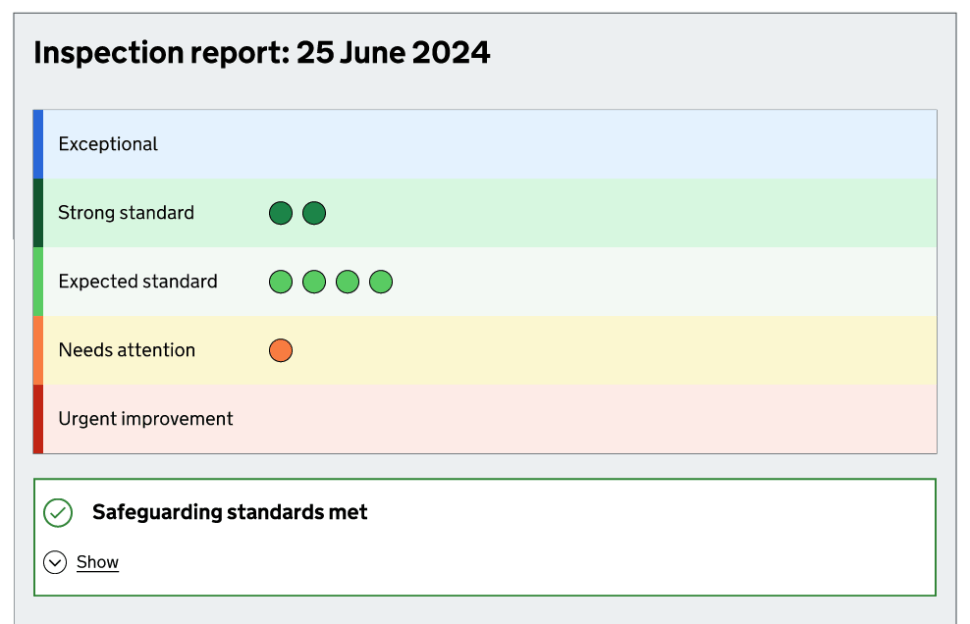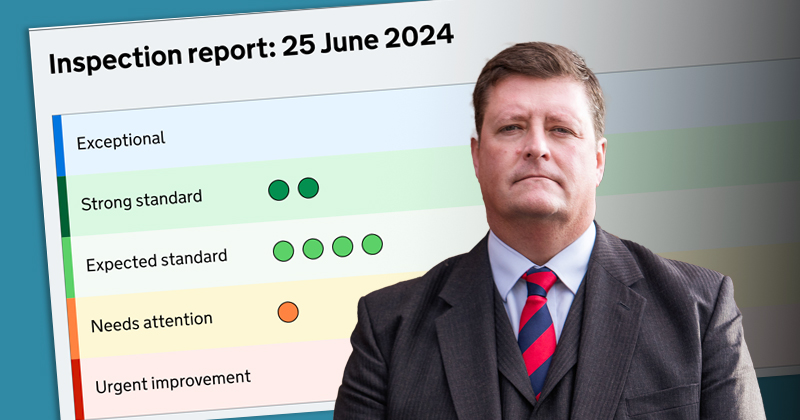Ofsted is refusing to publish data showing how many people support its new report card inspections, despite pledging transparency over the high-profile reforms.
The watchdog revealed its final plan for the cards this week after making tweaks such as renaming grades and merging evaluation areas. The changes follow an initial public consultation.
Unions say the plans, which will be rolled out in November, are “much worse” than previous inspections and will only heap “more pressure” on leaders.
Teachers’ support for ditching headline grades has also plunged after details of the alternative have emerged.

The watchdog received more than 6,500 responses to its consultation, 75 per cent of which were from education professionals. Twenty per cent were from parents and carers.
However, the inspectorate only provided a narrative summary of the responses in its own reply, published on Tuesday.
‘Completely unacceptable’
The consultation had 102 “open-ended” questions. Ofsted’s summary revealed each was given a “sentiment code to indicate the overarching sentiment: positive, negative, mixed, neutral or irrelevant”.
Responses were also given a “thematic” code to help Ofsted “identify recurrent themes”.
When asked for a summary of this data, an Ofsted spokesperson said its consultation response was “very clear that we received a wealth of rich and varied feedback – all of which we took into account as we designed the renewed framework.
“We’re not publishing any further breakdown.”
Meanwhile, the inspectorate has been accused of leaning heavily on a smaller poll of parents’ views, which it said “showed strong parental support” for its plans.
Pepe Di’Iasio, the general secretary of the leaders’ union ASCL, said it was “completely unacceptable” that Ofsted had not published a quantitative analysis of its consultation.

“Complete transparency” was needed to “see in full” sector reactions to the “deeply problematic” proposals.
Paul Whiteman, the general secretary of the NAHT, also accused the inspectorate of avoiding “clear, multiple-choice style questions” on purpose to avoid “proper analysis of the level of support for, or opposition to, its proposals”.
In its consultation report, Ofsted said the plans “generated a mixed and sometimes negative reaction”.
Teachers welcomed “removing the overall effectiveness grade” and “greater nuance and detail in the report cards”.
However, it “also heard many concerns” about the proposed reporting system. Teachers backed a more narrative-based report, or a “met or not met” grading system.
Meanwhile, “organisations representing school professionals…had a strong negative reaction”.
Sir Martyn Oliver, the chief inspector, has previously pledged to be “open and transparent” over the reforms, with “nothing hidden from the system”.
Whiteman said publishing the data was an “important test of that commitment”.
Polls suggest dismay
Polls suggest growing dismay in the sector. In February, a Teacher Tapp survey showed 75 per cent of teachers supported removing single-word headline grades. But that plunged to 36 per cent this week after Ofsted published its finalised plans.
The percentage who had “mixed feelings” about moving from one-word grades also soared from 19 to 44 per cent.

While unrepresentative, polls from the NAHT and the National Education Union showed about 90 per cent of respondents opposed the plans.
Most also wanted the inspectorate to pause its plans – which they believe will not allow for reliable assessment of schools. Inspections will restart in November, initially for volunteer schools.
But Ofsted said Oliver “had a positive call” with 900 school leaders this week and it “looks forward to working with sector organisations in the months ahead to ensure a safe and secure introduction of the renewed framework”.
















Your thoughts